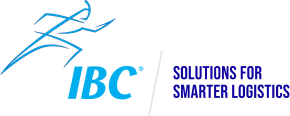The U.S. is a big market. And it’s growing.
But can a business expand into the U.S. without being in the U.S.? Can products be delivered without long delays or without frustrating customs constraints? Yes, yes – and yes.
E-commerce sales are growing:
- U.S. business to business (B2B) volumes more than doubled from 2010 to 2018 with revenue exceeding 6.6 trillion U.S. dollars in 2018.
- U.S. business to consumer (B2C) sales are projected to increase from 505 billion U.S. dollars in 2018 to over 735 billion U.S. dollars in 2023.
- Nasdaq expects about 95% of purchases to be facilitated by e-commerce by 2040.
Whether B2B or B2C, e-commerce is no longer a niche market. It is the market.
Are you ready to ship to the U.S., but not physically present? IBC has helped others and can help you, too.
What You'll Need to Get Started
The proper paperwork.
The process for shipping into the U.S. is clearly delineated – and a bit complicated.
For those who want to do it alone, it can be done. The U.S. Customs and Border Protection (CBP) has a great deal of information on its website. Some of the import information includes:
- Tips for New Importers
- Importing into the United States
- Informed Compliance Publications
- Directives and Handbooks
- Rules of Origin
- Tariff Classification
There’s more, but the above is a good start.
Unfortunately, doing this alone is difficult – and time consuming. Working with a customs broker (as we describe below) can streamline this process, so you can ensure compliance when shipping internationally.
But before we get into that, let’s first look at what is needed to import your products into the U.S.
The Importer
All imports require an importer. That is simple enough. Who the importer is, however, can vary.
An importer can be the consignee, importer of record, owner of the merchandise or transferee of the merchandise.
If you, the seller and owner of the merchandise, are the importer, then you are responsible for paying the duties and associated paperwork. (See our blog post – How are Duties and Taxes Calculated for International Shipments? – for more information on this topic.)
While an Importer of Record (IOR) may be the owner of the merchandise – either the consignor or the consignee – a customs broker can also be designated by the importer to act as the IOR.
The IOR’s responsibilities include:
- Correct and complete entry documentation (including valuation and product classification).
- Payment of duties on all imported goods.
- Compliance with all regulations regarding imported goods.
Why Work With a Customs Broker?
A customs broker will save you time and make sure the paperwork is correct, so your product does experience any unnecessary delays.
What an importer would need to learn to process international shipments, a customs broker already knows – and has an implemented system already in place. In short, the customs broker specializes in processing international shipments.
If you need help to establish yourself as a Foreign Importer of Record (FIOR), a customs broker can advise on the requirements and help you through the process. They can also assist with securing the Customs Assigned Importer Number and a Customs Bond for your goods.
While fulfillment services, such as Fulfillment by Amazon (FBA) and Walmart Fulfillment Services (WFS), can provide opportunities to market your products, they do not provide the required support to help you become a FIOR or to process the ongoing customs documentation.
A customs broker is authorized by the U.S. Customs and Border Protection (CBP) to act as an agent of the importer during the transaction of their business with the CBP.
IBC has been a licensed customs broker for over 40 years, and can help to ensure compliance aligned with rules and regulations.
What About Other Services?
Customs clearance is critical, but not the only service needed for international shipments. Other common services are transportation, storage and distribution.
Transportation – via air, land or ocean – to the U.S. must be arranged, and often within the U.S. to the final destination. Our logistics and cargo dedicated professionals can assist in finding the optimal solution to meet your service requirements.
From moving ocean containers to coordinating expedited next flight out (NFO) shipments – and everything in-between – we know how to move your cargo.
Warehousing and distribution services including value-added repackaging are sometimes required. IBC has secure warehouses, bonded facilities, strategically located facilities and much more.
We are International Air Transport Association (IATA) and Customs Trade Partnership Against Terrorism (CTPAT) certified.
Start Shipping Into the U.S. With Help From the Experts at IBC
In business since 1979, we specialize in international freight. If it needs to move, we can help. From small parcels to large containers – via air, ocean, or land – across one international border or many, we know the rules, the regulations and the right way to get it there.
We are a licensed customs broker with extensive experience helping e-commerce companies move and clear cargo throughout the world.
Contact us today to start shipping into the U.S. Any type of global e-commerce, customs brokerage, logistics and cargo, or special services needed are within our networks wheelhouse.

Subscribe for the latest updates
Subscribe Here!
By submitting this you will be receiving our latest updates on post.
- Recent
- Popular

.svg)
.svg)
.svg)
.svg)
Comments
Comment Form